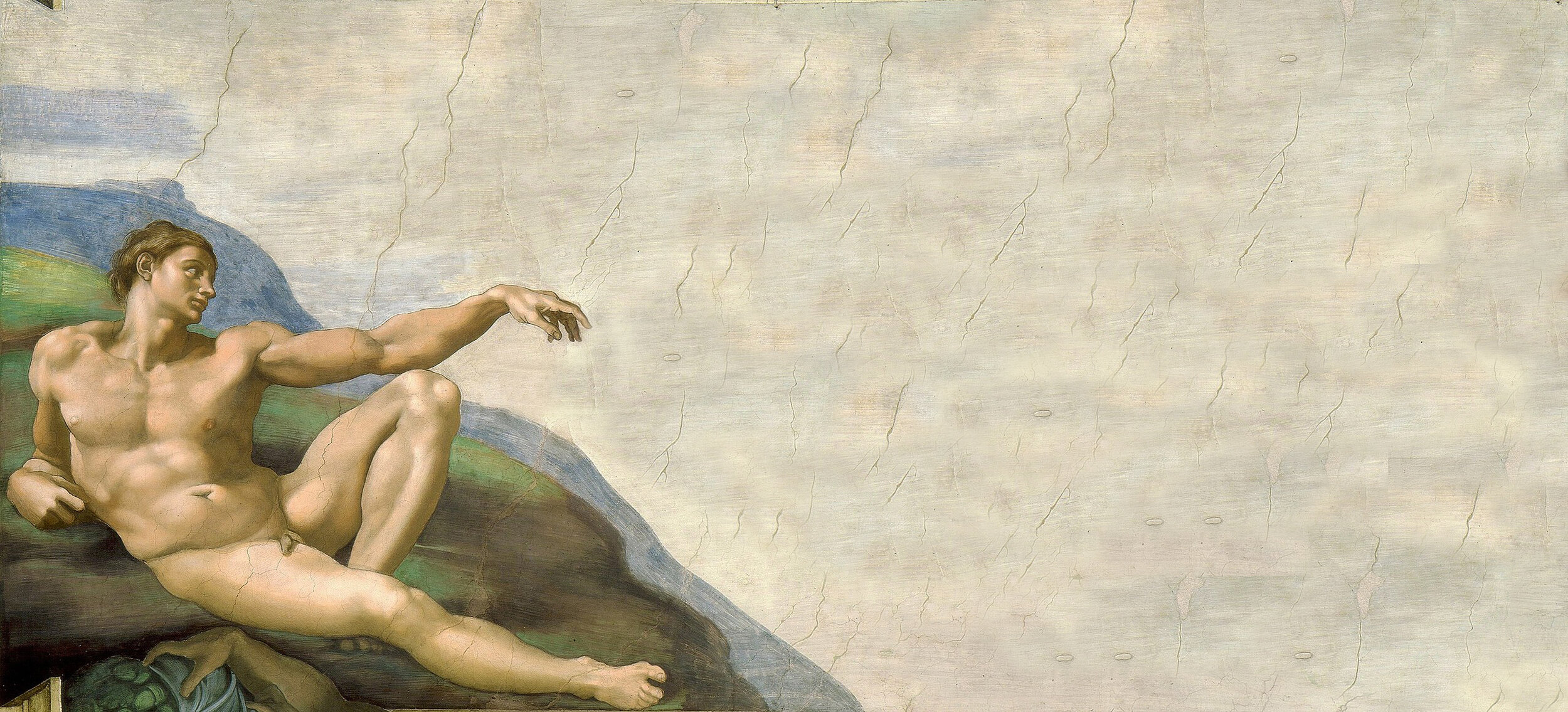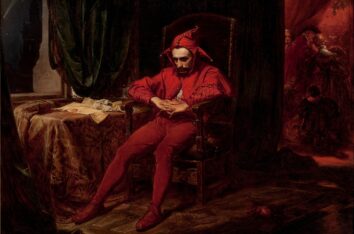In this series we have seen that Jesus, by his anguished cry from the cross (“My God, my God, why have you forsaken me?”), utterly and completely subverted the American Gospel which promises that we can avoid the void if we just do X, Y, or Z. Rather than seeking to circumvent the darkness, Jesus plunged himself into its depths. Rather than opting for the comfort and assurance of the Idol and deus ex machina, Jesus burned the whole idolatrous system to the ground.
But it goes even deeper. On the cross, God became an atheist.
It wasn’t simply the crucifixion, says G.K. Chesterton, but Jesus’ cry of dereliction that shook the world and extinguished the sun, and it was in this cry that the confession was made that “God was forsaken of God.” It was here that a crack began to appear in the foundation of the Idol, and the power of “God Almighty” gave way to weakness:
“Christianity is the only religion on earth that has felt that omnipotence made God incomplete. Christianity alone has felt that God, to be wholly God, must have been a rebel as well as a king.”
Here we see the weakness of Exile challenging the power of Empire. It is here, says Chesterton, that we witness the doubt of God.
He continues:
“And now let the revolutionists choose a creed from all the creeds, and a god from all the gods of the world…. They will not find another god who has himself been in revolt. Nay (the matter grows too difficult for human speech), but let the atheists themselves choose a god. They will find only one divinity who ever uttered their isolation; only one religion in which God seemed himself for an instant to be an atheist.”
Meister Eckhart said that the highest of all possible prayers was the prayer for God to rid us of God. Concerning that prayer for Deicide — or for divine suicide — John Caputo writes:
“Farewell to Religion’s God, to the Master of the House, to the Lord High Governor and Administrator of the Economy of Salvation and Supreme Separator of Sheep and Goats (royals have long names and numerous titles). God save us from that God. I am praying God to rid God of God but — and everything depends on grasping this — in the very same breath I am praying that God may be God in the world. I pray that the world may become the place where God, having abdicated his royal seat, may be God with us” (Hoping against Hope: Confessions of a Postmodern Pilgrim, p. 111).
“The time has come, in the name of God,” Caputo concludes, “to dim down the blazing glory of the divine countenance in order to let a smile appear on the surface of the world.”
An Exilic faith must embrace this divine atheism as well, and allow God to rid us of God. Embracing the cross means embracing the death of the entire serpentine and idolatrous system according to which quid pro quos are promised, Ps and Qs are minded, and backs are mutually scratched in a cosmic game of “Let’s Make a Deal.”
Identifying with the crucified Christ means much more than simply understanding my debt to have been vicariously paid by a sinless benefactor. No, the cross spells the death of the entire system that allows “debt” to be a thing in the first place. It’s not a doubling-down on the Old Covenant, it’s the Year of Jubilee in a covenant that is altogether new.
And the leap that is taken on Good Friday is a leap of faith.
In the same way that Jesus succumbed to death in the unlikely hope of resurrection, saying “Father, into your hands I commit my spirit,” likewise we must be willing to crucify our old gods as well, not really knowing what, if anything, will emerge from the tomb on Easter morning.




[…] In another post in this series I talked about Meister Eckhart’s prayer for “God to rid us of God.” This can be understood to mean that God, as illustrated by the Christ event, has abdicated his royal seat and has poured himself out as a sacrificial offering upon the surface of the world. The self-emptying of Christ as described by Paul has ramifications beyond Calvary. “God is Spirit,” says Jesus, and “in the last days, saith the Lord, I will pour out my Spirit upon all flesh” (John 4:24; Acts 2:17). […]